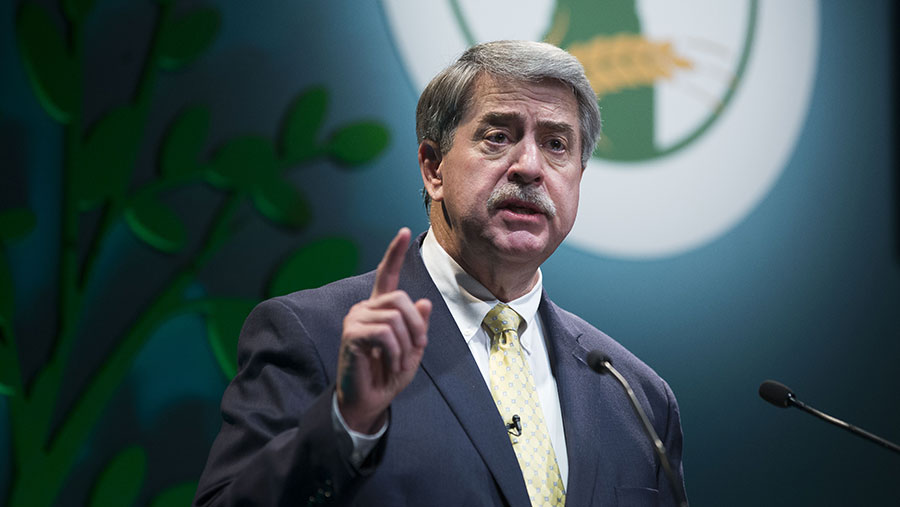USA ‘sick and tired’ of chlorinated chicken debate
The USA is “sick and tired” of hearing about chlorinated chicken and wishes the UK would “get off” the issue, a senior American trade official has warned.
Ted McKinney, United States Department of Agriculture under secretary for trade and foreign agricultural affairs, said the USA had not used chlorine to wash chicken “for a long time”.
The EU bans imports of chlorinated chickens on welfare grounds – and Defra secretary Michael Gove has pledged standards won’t be diluted after Brexit.
See also: Chlorinated chicken could delay UK-US trade deal

Ted McKinney © David Hartley/REX/Shuterstock
Mr McKinney said UK consumers should have the opportunity to buy American-produced chicken, which was completely safe and animal welfare friendly.
We will hold our food safety, environment and animal welfare standards up against the UK any day of the week and twice on Sunday Ted McKinney, United States Department of Agriculture
The USA was not going to force feed anyone – but it was important to recognise that US food standards were comparable to those in the UK.
“We will hold our food safety, environment and animal welfare standards up against the UK any day of the week and twice on Sunday,” said Mr McKinney.
“So let’s just get that out of the way.”
Speaking to reporters at the Oxford Farming Conference, he added: “As for chlorinated chicken, I am sick and tired of hearing about chlorinated chicken because it’s not true.”
No questions
“So I am not going to take any questions from any of you if you raise [the issue of] chlorinated chicken because we haven’t used chlorine for a long time.
“I ask that you move on and get off.”
Mr McKinney said the US government had set up a Google search on Defra secretary Michael Gove so it was notified if he mentioned chlorinated chicken in his speeches.
“All your speeches, we are watching,” he told Mr Gove, who was sitting next to Mr McKinney during the press conference.
Asked by reporters about differences in animal welfare standards between the UK and the USA, Mr Gove said similarities should be given priority.
“The most important thing both when you are thinking both of any trade deal – or any relationship – is don’t concentrate on those areas where you may have difference first.”
Common interests
“Concentrate on those areas where you have a commonality of interests.”
Mr Gove said he understood there was a “natural tendency” for onlookers to find obstacles that they believed meant a deal couldn’t be done.
But it was far better to work constructively by building on any commonality of interests and set aside any differences that could be resolved later.
“If we do find things that we need to put to one side, let’s do that in a mature way once we’ve established all the things we’ve got in common.”
